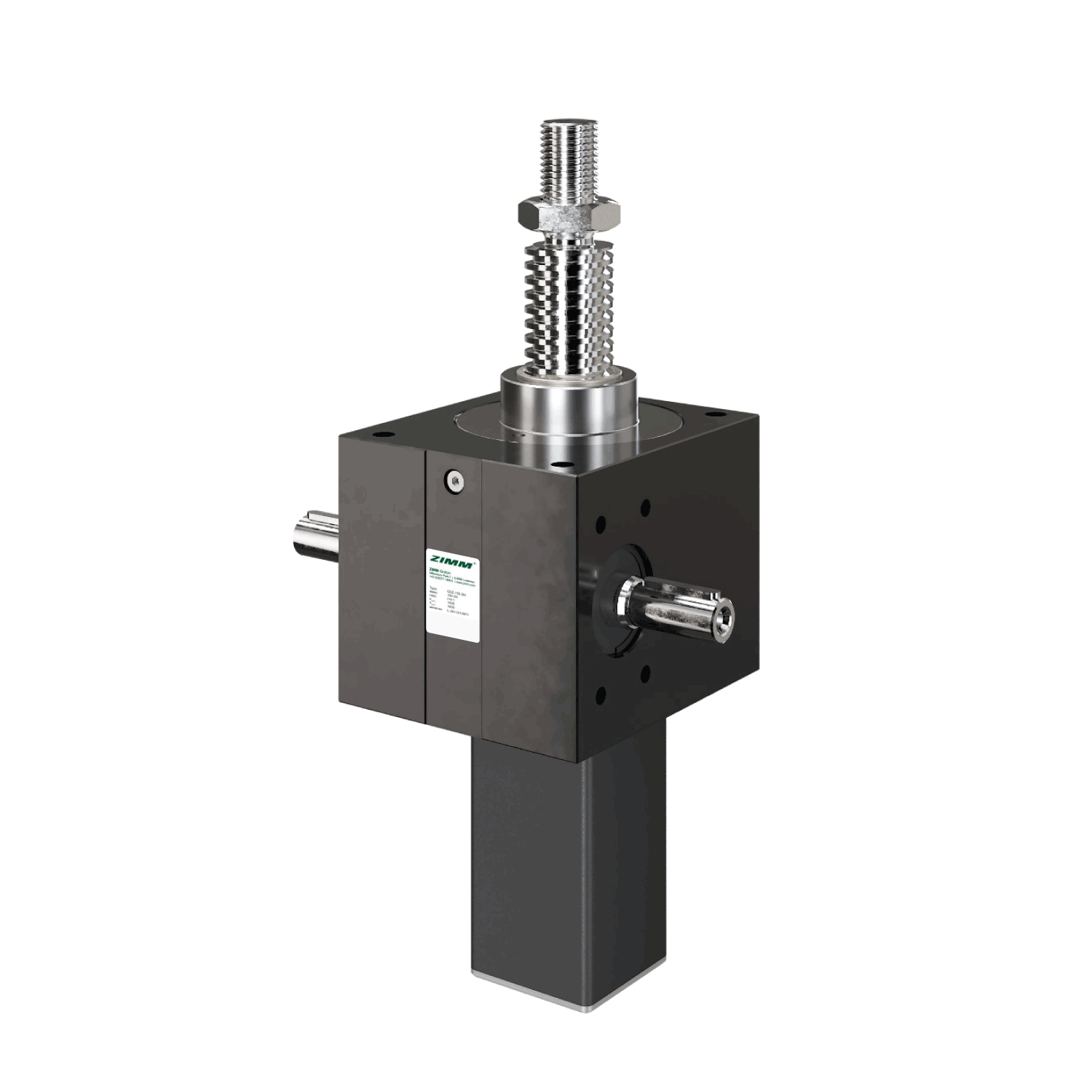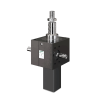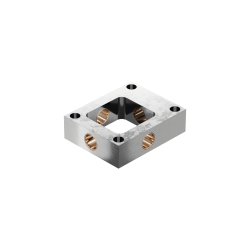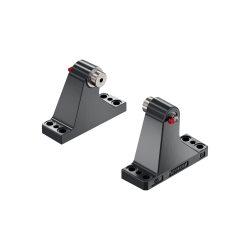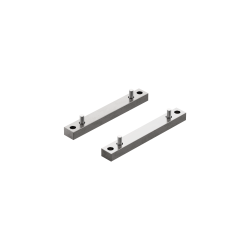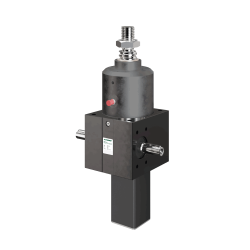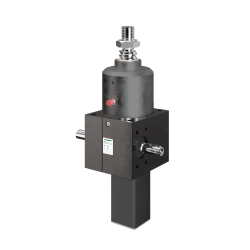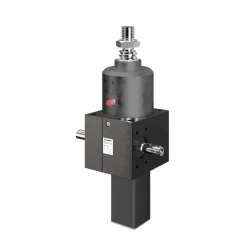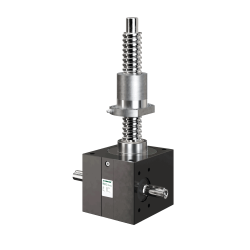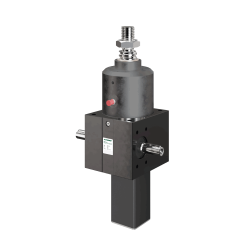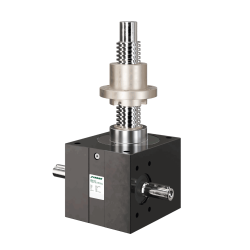| 150 kN | |
| 1500 rpm | |
| 1800 rpm | |
| 60x9 | |
| GGG-50, corrosion-resistant | |
| Steel, case-hardened, ground | |
| 42 kg | |
| 19 kg | |
| Synthetic fluid grease | |
| Grease lubrication | |
| max. 60°, higher on request | |
| N: 7.92 kg cm² / L: 5.17 kg cm² | |
| max. 75.1 Nm (N) / max. 20.7 Nm (L) | |
| max. 540 Nm | |
| Translating (S) |
R-Screw | rotating
The spindle is fixed to the worm wheel and rotates with it. The nut therefore moves up and down.
S-Screw | translating
The worm wheel has an internal thread and transforms rotary motion into linear movements as long as the spindle is prevented from rotating.
A safety nut is specially applied in such cases where the rupture of the screw may be of danger for people. Safety nut may also be used in other devices to protect against damage of machinery and outages.
Wear
After a maximum of 25% of the thread is worn out, the support nut (R) or the gear (S) needs to be replaced.
Monitoring
It is necessary to perform periodic checks and to record the wear or the thread alignment (according to the time in operation). This enables to plan the replacement soon enough to avoid the outage of the equipment.
Electronic monitoring
Electronic monitoring will signal when the approximate level of 25% wear is reached and this could be immediately displayed at the central location. Wear parts replacement may be organised in a timely manner.
